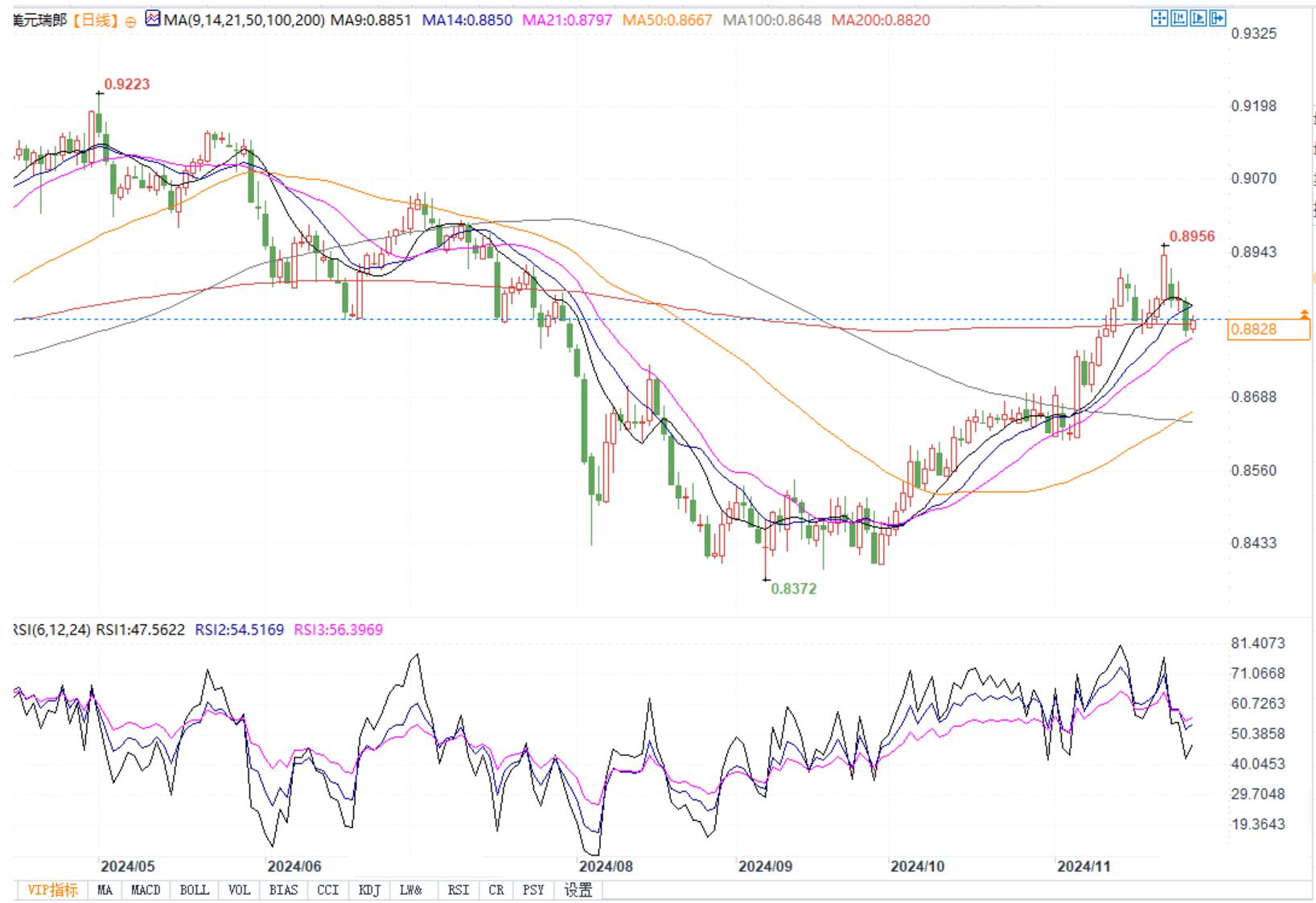Japanese Yen vs Swiss Franc! Which currency is the preferred safe haven for international trade conflicts that may escalate again?
US President elect Trump recently announced the imposition of new tariffs, sparking interest in the safe haven currency, the Japanese yen, to hedge against broader trade conflicts. This interest is partly due to the appreciation of the Japanese yen caused by the 2019 new tariff announcement. However, Goldman Sachs stated that the current macroeconomic and market conditions indicate that the strength of the yen may not be as apparent as in the past, and this time the yen may not be an ideal hedge tool.
Two major factors leading to the weakening of the Japanese yen
Goldman Sachs identified two key factors that could lead to a weakening of support for the yen:
① PCE data from the United States:
Before 2019, the average core PCE in the United States was 1.5%.
At present, after reaching a peak of nearly 5.7% in 2022, the data is 2.65%. This difference indicates that the Federal Reserve may reduce the frequency of interest rate cuts in 2025, which is different from the situation in 2019 when the Fed ultimately took interest rate cuts.
② Trump's Second Presidential Term
Trump has won his second term and is preparing to adopt familiar tariff policies, which may lead to less intense market reactions.
Although the safe haven status of the yen may provide some support in times of escalation, its potential for appreciation seems limited.
Goldman Sachs emphasizes that the macroeconomic background of the United States remains the most important driving factor for the performance of the yen.
In terms of hedging, Goldman Sachs prefers the Swiss franc
In contrast, Goldman Sachs is more supportive of the Swiss franc. Goldman Sachs stated that if the severity of international trade conflicts exceeds expectations, the Swiss franc may be a more favorable "long" position than the Japanese yen.
There are two main reasons behind this assessment:
① The impact on European growth: Trade conflicts are expected to have a significant negative impact on European growth. In this situation, the Swiss franc can provide protection against the deterioration of the European economic outlook.
② The downward space of US bond yields is limited: the potential for US treasury bond bond yields to decline seems limited. This factor further enhances the attractiveness of the Swiss franc as a long position.
Although the report emphasizes the historic role of the Japanese yen as a hedge against concerns of a US economic recession and acknowledges that due to its safe haven status and policy uncertainty, the yen will depreciate slightly next year, the Swiss franc will become a more attractive option if growth prospects show resilience to worsening economic downturns.

Daily chart of USD/CHF
Tips:This page came from Internet, which is not standing for FXCUE opinions of this website.
Statement:Contact us if the content violates the law or your rights
